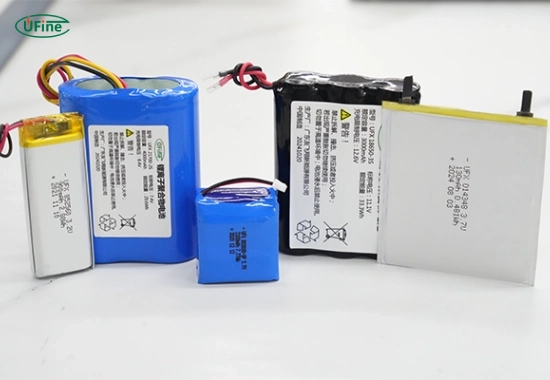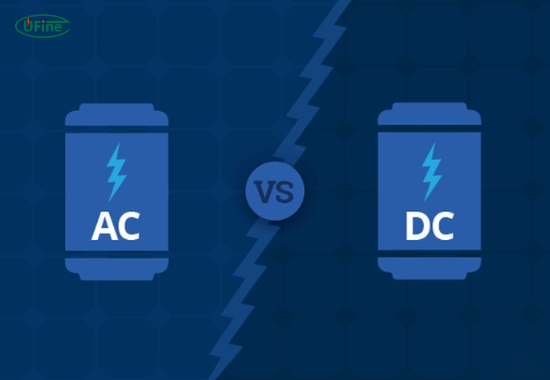In our increasingly mobile and tech-driven world, understanding the various types of batteries is crucial. One such type is the DC battery, which plays a significant role in powering multiple devices and applications. But what exactly is a DC battery, and how does it differ from other types? This comprehensive guide will explore everything you need about DC batteries, including their functions, types, advantages, and common applications.
Part 1. What is a DC battery?
A DC battery, or direct current battery, is a type of energy storage device that provides electrical energy in direct current. Unlike alternating current (AC) batteries, which supply power that changes direction periodically, DC batteries maintain a constant voltage and flow of electricity in one direction. This characteristic makes them ideal for many electronic devices and systems.
How Do DC Batteries Work?
DC batteries operate on the principle of electrochemistry. They consist of one or more electrochemical cells that convert chemical energy into electrical energy through chemical reactions. Here’s a simplified overview of how they work:
- Chemical Reaction: Inside the battery, chemical reactions occur between the anode (negative terminal) and cathode (positive terminal).
- Electron Flow: These reactions release electrons, which flow from the anode to the cathode through an external circuit, providing power to connected devices.
- Recharging: In rechargeable DC batteries, applying an external voltage reverses the chemical reactions, restoring the battery’s charge.
Are Batteries AC or DC? A Complete Guide
Part 2. Types of DC batteries
There are several types of DC batteries available today, each designed for specific applications:
- Lead-Acid Batteries: Lead-acid batteries are one of the oldest rechargeable batteries. Vehicles and backup power systems commonly use them for their reliability and cost-effectiveness. They are heavy but can deliver high currents.
- Lithium-ion Batteries: These batteries have become very popular in recent years. They are widely used in consumer electronics like smartphones, laptops, and electric vehicles (EVs). Lithium-ion batteries are lightweight and have a high energy density, meaning they can store much energy relative to their size.
- Nickel-Cadmium (NiCd) Batteries: NiCd batteries, known for their durability and ability to perform well in extreme temperatures, once dominated portable electronics but lost popularity as newer, more environmentally friendly technologies emerged.
- Nickel-Metal Hydride (NiMH) Batteries: NiMH batteries are often used in hybrid vehicles and rechargeable household items. They offer higher capacity than NiCd batteries and are less toxic.
Part 3. Advantages of using DC batteries
DC batteries offer several advantages that make them a popular choice for various applications:
- Efficiency: They provide a stable voltage output, making them efficient for powering electronic devices. This stability ensures that devices operate smoothly without fluctuations.
- Rechargeability: Many DC batteries allow users to recharge multiple times, reducing waste and long-term costs. This feature primarily benefits consumers who want to save money on replacements.
- Versatility: Users can operate these batteries in various applications, from small gadgets like remote controls to significant renewable energy systems like solar panels.
- Low Maintenance: Most modern DC batteries require minimal maintenance compared to older technologies. This ease of use makes them appealing to everyday consumers.
Part 4. Common applications of DC batteries
Numerous applications across different industries use DC batteries:
- Consumer Electronics: Devices such as smartphones, laptops, tablets, and cameras primarily rely on lithium-ion or lead-acid batteries. These batteries allow users to enjoy portability without being tethered to an outlet.
- Electric Vehicles: EVs utilize large lithium-ion battery packs to provide propulsion energy. As technology advances, these battery packs become more efficient, allowing longer driving ranges.
- Renewable Energy Systems: Solar energy systems often incorporate DC batteries to store excess energy generated during peak sunlight hours. This stored energy can be used when sunlight is not available.
- Backup Power Supplies: Uninterruptible power supplies (UPS) use lead-acid or lithium-ion batteries to provide emergency power during outages. This capability is essential for businesses that rely on continuous operation.
Part 5. How to choose the right DC battery?
Selecting the right DC battery for your needs involves considering several factors:
- Capacity: The capacity of a battery, measured in amp-hours (Ah), indicates how much charge it can store. Choose a capacity that meets your device’s power requirements, as larger devices often need higher capacity.
- Voltage Rating: Ensure the battery’s voltage matches your device’s specifications to avoid damage or malfunction. Using a battery with too high or too low voltage can lead to performance issues.
- Chemistry Type: Based on your application needs, consider the advantages and disadvantages of different battery chemistries. For example, lithium-ion batteries may be best for portable electronics, while lead-acid batteries might be suitable for vehicles.
- Size and Weight: Depending on your application, size and weight may be critical factors—especially for portable devices where weight savings can enhance usability.
- Cost: Balance your budget with performance needs; sometimes, investing in a higher-quality battery can save money in the long run due to longevity and efficiency.
Part 6. Maintenance tips for DC batteries
Proper maintenance can extend the life of your DC battery significantly. Here are some tips:
- Regular Charging: Keep rechargeable batteries topped off; avoid letting them discharge completely frequently, as this can reduce their lifespan.
- Temperature Control: Store and use batteries within recommended temperature ranges to prevent damage from extreme heat or cold.
- Clean Terminals: For optimal performance, ensure that battery terminals are clean and free from corrosion; dirty terminals can cause poor connections and reduce efficiency.
- Follow Manufacturer Guidelines: Always adhere to manufacturer instructions regarding charging cycles and usage conditions; this will help maintain performance and safety.
Part 7. What are the main differences between AC and DC batteries?
Understanding the differences between AC (Alternating Current) and DC (Direct Current) batteries is essential for selecting the right power source for your needs:
- Current Flow: AC batteries supply power that changes direction periodically, while DC batteries provide a constant flow of electricity in one direction. This fundamental difference affects how each type is used in various applications.
- Applications: AC is commonly used in household outlets where appliances require alternating current; however, many electronic devices operate on DC power from their internal batteries or adapters.
- Efficiency: In specific scenarios, such as electric vehicles or renewable energy systems, DC can be more efficient because it reduces energy loss during conversion processes when changing AC to DC.
Part 8. FAQs
-
How do I know if my device requires a DC battery?
Most modern electronic devices specify power requirements on labels or user manuals; check these resources to see if they need a direct current source or can operate with alternating current. -
Can I use any charger for my lithium-ion battery?
No! Using an inappropriate charger can damage lithium-ion batteries or pose safety risks; always use chargers specified by the manufacturer to ensure safe operation. -
How long do different types of DC batteries typically last?
The lifespan varies by type; lead-acid batteries may last 3-5 years under normal conditions, while lithium-ion can last up to 10 years with proper care and regular charging cycles. -
Are there any safety concerns with using DC batteries?
Yes! Safety concerns include overheating during charging or discharging cycles. To minimize risks, constantly monitor temperatures and follow safety guidelines provided by manufacturers. -
Can I recycle my old DC batteries?
Yes! Recycling facilities or programs can process many types of DC batteries. Check local regulations to ensure proper disposal, minimize environmental impact, and recover valuable materials from used batteries.
Related Tags:
More Articles

How to Choose the Best Floor Scrubber Battery for Commercial Cleaning?
Selecting the ideal floor scrubber battery ensures a long runtime, rapid charging, and minimal maintenance for efficient commercial cleaning operations.
Battery for Blower vs Battery for Leaf Vacuum: Which One Should You Choose?
Battery for blower vs leaf vacuum—learn the key differences in power, fit, and runtime to choose the right battery for your outdoor tool needs.
How to Choose the Right Battery for Blower?
Choosing the right blower battery? Consider voltage, capacity, chemistry & usage. This guide helps match the best battery for peak performance.
How to Choose the Best Insulated Battery Box for Lithium Batteries?
Choosing the Best Insulated Battery Box for Lithium Batteries? Discover key factors such as size, material, and safety for optimal protection and performance.
7 Critical Elements on a Lithium Battery Shipping Label
What must be on a lithium battery shipping label? Learn 7 key elements to ensure safety, legal compliance, and correct handling across all transport modes.






